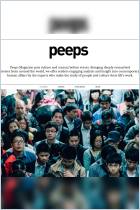
Read or listen offline
Amazon KindleRecommendation
The Japanese mobile game Tabi Kaeru, or Travel Frog, has overcome language barriers and gained overwhelming popularity in China. Even though no Chinese version existed, this minimalist game about a traveling frog quickly became the most downloaded app in Apple’s Chinese app store, garnering more than 3.9 million downloads between December 2017 and February 2018. In contrast, only 400,000 people downloaded the game in its home country; that’s Apple app store and Google Play combined. Entertainment writer Gao Lingling of China’s leading business and technology information provider TMTpost relates the country’s obsession with the game to the stress and anxiety levels of China’s younger generations. She takes a critical look at the phenomenal success of this game in China and discusses the issues that China’s gaming industry is facing. getAbstract recommends this article to gaming enthusiasts and people interested in the mental health of China’s youth.
Summary
About the Author
Gao Lingling is a writer for new media company Nan Qi Dao, which was founded by the entrepreneur and tech blogger of the same name. This article was published on TMTpost, China’s leading business and technology information provider.














Comment on this summary or Начать обсуждение